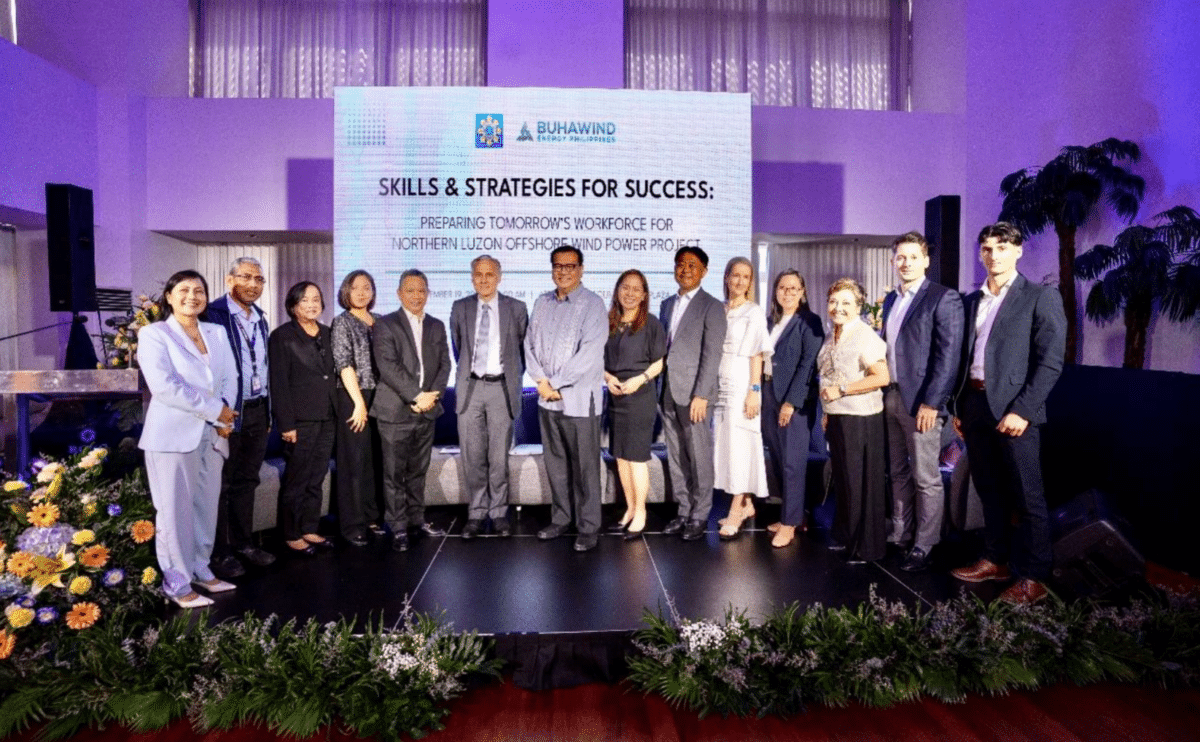From being home to the first onshore wind farm in Southeast Asia, the Ilocos Region in Northern Luzon now stands as yet another important site for harnessing offshore wind power in the Philippines and a strategic area to support renewable energy workforce in the country.
With a 2-GW floating offshore wind farm project in Ilocos Norte, Buhawind Energy Philippines (BEP), a joint venture between Yuchengco-led PetroGreen Energy Corporation (PGEC) and Denmark’s Copenhagen Energy (CE), held the forum Skills & Strategies for Success: Preparing Tomorrow’s Workforce for Northern Luzon Offshore Wind Power Project, on November 19, 2024 in RCBC Plaza, Makati City

Resource speakers and panel discussants with BEP officers and executives during the forum on Skills & Strategies for Success: Preparing tomorrow’s workforce for Northern Luzon Offshore Wind Power Projects held on Nov. 21, 2024, in Makati City.
This event brought together key industry experts, investors, educators, and policymakers who discussed strategies for workforce upskilling and development in the offshore wind energy sector, specifically focused on Northern Luzon. The activity was welcomed and supported by the provincial government of Ilocos Norte led by Gov. Matthew Joseph Manotoc. “We are pleased with the level of support and commitment that we receive from various stakeholders aimed at equipping the Ilocos Norte workforce with necessary skills to thrive in offshore wind energy.” said Rona Leigh C. Bueno, D.B.A., Head of Ilocos Norte Trade and Investment Promotions Center (INvest).
BEP President Francisco Delfin, Jr. emphasized that the event is just the beginning of long- term and society-wide collaborations to ensure that Filipino professionals and workers benefit from offshore wind energy projects. Delfin stated, “We strongly believe that the journey to a sustainable energy future should also be a roadmap for a stronger nation- building.”
Department of Energy Undersecretary Sharon Garin outlined the development and growth prospects in offshore wind country in Northern Luzon and the Philippines as whole. She emphasized that accelerating offshore wind development will not only involve supporting port infrastructure and marine-based energy resource development projects, but also empowering the Filipino workforce through right-skilling initiatives and international accreditation programs.
The forum also identified the most pressing workforce development needs and training and learning gaps, which are important inputs to charting a roadmap for creating job opportunities in the growing offshore wind industry.
Among ongoing initiatives presented during the forum was the JOBS4RE initiated by the Danish and Philippine governments and currently led by the International Renewable Energy Agency (IRENA) and Global Wind Organisation (GWO).
Danish Ambassador Franz-Michael Mellbin underscored the importance of working together to strengthen the renewable energy workforce, “Government, industry and the educational sector needs to work together to ensure that the Philippines can make the most of the many opportunities for jobs and economic growth in this exciting, high-potential sector”.
BEP Vice President for Planning and Finance Anna Konovalova laid down the different core competencies and career pathways in offshore wind energy that training providers and academic institutions can refer to when designing programs and certification trainings.
For his part, Dodjie S. Maestrecampo, Ph.D., President of Mapua University, shared how outcome-based education (OBE) and digital learning platforms already practiced by Mapua, can be utilized in encouraging young professionals and students to take-up courses and micro-credentialing related to offshore wind and renewable energy.
According to Buhawind, such forum and succeeding discussions on preparing the offshore wind energy workforce are critical in ensuring industry sustainability and securing benefits for local communities in the region.
ADVT.

